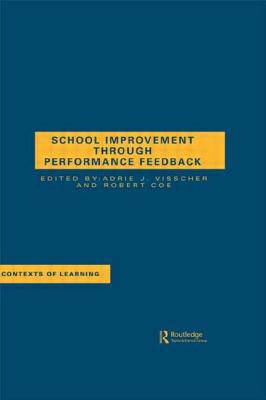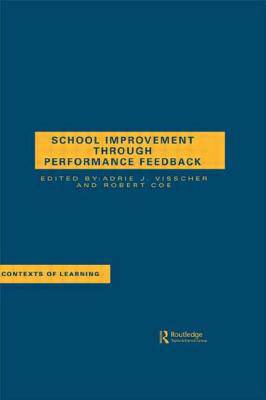
- Afhalen na 1 uur in een winkel met voorraad
- Gratis thuislevering in België vanaf € 30
- Ruim aanbod met 7 miljoen producten
- Afhalen na 1 uur in een winkel met voorraad
- Gratis thuislevering in België vanaf € 30
- Ruim aanbod met 7 miljoen producten
Zoeken
School Improvement Through Performance Feedback
€ 105,45
+ 210 punten
Omschrijving
Internationally there is an increasing trend to publish and feed back information to schools and teachers on their functioning. School improvement is often the central goal, though accountability and the promotion of parental/student school choice also play an important role.Practical initiatives and research in this field have often failed to recognize the full complexity of improving schools through school performance feedback. Relevant questions are, for example, to what extent: the information fed back to schools is valued and understood by them; the school performance feedback enables appropriate diagnosis and remediation to take place in schools; the use of the feedback generates conflicts and tensions for teachers and administrators; the features of the implementation process and school organization influence the utilization of school performance feedback systems; schools do actually improve as a result of performance feedback; and the feedback systems have unintended effects. This book fills the gap by including: a thorough conceptualization of school feedback as a performance enhancing mechanism, and the prerequisites for utilizing this information in schools; a typology of school performance indicators; a review of the research on the impact of feeding back performance information to individuals and to organizations; evidence on the process, problems and impact of school performance feedback from an international variety of contexts (Australia, the Netherlands, United Kingdom, USA); and reflections on these experiences within the theoretical framework, leading to recommended strategies for school improvement through performance feedback.
Specificaties
Betrokkenen
- Uitgeverij:
Inhoud
- Aantal bladzijden:
- 282
- Taal:
- Engels
- Reeks:
Eigenschappen
- Productcode (EAN):
- 9780415432238
- Verschijningsdatum:
- 1/12/2006
- Uitvoering:
- Paperback
- Formaat:
- Trade paperback (VS)
- Afmetingen:
- 156 mm x 234 mm
- Gewicht:
- 408 g

Alleen bij Standaard Boekhandel
+ 210 punten op je klantenkaart van Standaard Boekhandel
Beoordelingen
We publiceren alleen reviews die voldoen aan de voorwaarden voor reviews. Bekijk onze voorwaarden voor reviews.










